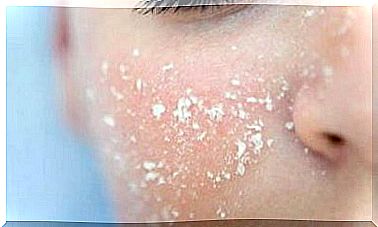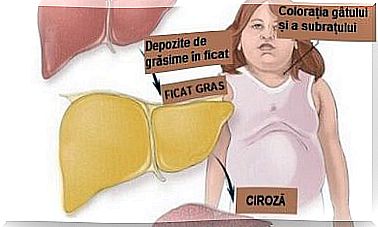Heavy Metals Contaminated Baby Food

There is a wide range of baby food on the market. However, a new report issued by the House Oversight and Reform Committee revealed what baby food is contaminated with heavy metals.
The toxic elements involved are lead, arsenic, cadmium and mercury. They can get into food from the environment, water and soil where the raw material from which they are made grows.
For every 5 baby foods, 1 has more than 10 times the 1 billion per share lead limit set as a public health measure. According to the report, these metals endanger the child’s long-term brain function and neurological development.
What does the EDF report say about baby food contaminated with heavy metals?
A 2017 Environmental Protection Fund (EDF) report looked at data from the US Food and Drug Administration’s (FDA) Total Diet Study (TDS), which ran from 2003 to 2013.
Since the 1970s, TDS has found heavy metals in food. In 2003, it was found that 20% of baby foods have detectable levels of lead. It has been estimated that over 1 million children have exceeded the FDA limit for lead.
For this reason, a new, more sensitive analytical method was introduced in 2014. The aim was to detect very low levels of heavy metals in baby food. As a result, a higher percentage of contaminated food was obtained: 29.3% compared to only 12.7% before 2014.
Two years later, there was a significant drop in lead in fruit juices, such as apple and grape juices, which are sold as baby food. In 2017, the trend was the same, the level reaching 11% contaminated juices. However, 93% of foods, such as sweet potatoes, carrots, toothpaste and rice crackers, have a high level of lead.
Years later, a recent report by the United States Congress provided shocking new data. The results were based on a 2019 study by nonprofits such as Healthy Babies Bright Futures.
Of the 168 baby foods on the market, 160 were found to be contaminated with heavy metals. For this reason, it was considered necessary to set stricter standards for baby food producers.

This latest baby food contamination investigation found that 95% of commercial products were lead contaminated.
75% of baby foods contained cadmium and 73% arsenic. 32% of commercial products were contaminated with mercury. A quarter of the 168 foods tested contained a mixture of the four toxic metals.
What are the most contaminated foods?
The authors of the 2019 study, Jane Houlihan and Charlotte Brody, pointed out that all foods with small amounts of toxic metals can cause serious health problems for children.
The most at-risk products were commercial baby food made from mashed sweet potatoes or rice and fruit juices and sweet snacks. This coincides with the 2016 FDA report, which stated that of the 39 foods analyzed, 33 were contaminated with heavy metals.
Rice-based foods, such as baby cereals and snacks, are in the first place as the most toxic. They contain a lot of inorganic arsenic and often all four toxic metals.
How can heavy metals affect a child’s development?
The report presented by Congress points out that low levels of heavy metals in food can alter brain development and reduce a child’s IQ. This affects every meal, including snacks.
In addition, the report argues that exposure to these toxic metals can lead to a decline in future economic productivity. There would also be a higher risk of antisocial and criminal behavior in the future of children.
According to Thomas Matte, low levels of lead in food can lead to poor cognitive development, behavioral disorders and short stature in children. Once the problem occurs, it cannot be treated or reversed.
Irritability, abdominal pain, nervousness, poor appetite, headache and concentration problems are some of the early symptoms of lead poisoning.
The World Health Organization (WHO) points out that prolonged exposure to arsenic can cause skin damage, developmental problems and neurotoxicity with low scores on intellectual tests. In turn, a group of doctors warns that the toxic effects of cadmium are more pronounced in the bones and kidneys, people with low iron levels being more vulnerable.
Another study published in the journal Nutrition Hospitalaria states that mercury affects the development of the nervous system in the fetus. In the newborn it can alter cognitive function, reproduction and cardiovascular risk.
Recommendations for avoiding heavy metals in babies










